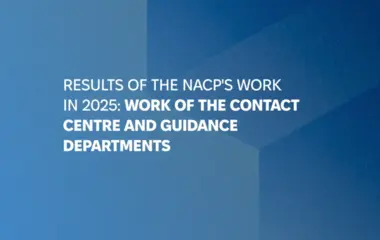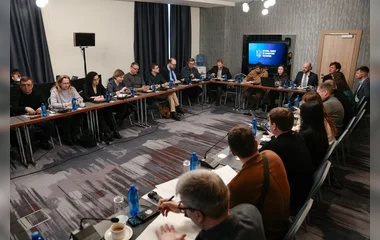From April to October 2025, the National Agency on Corruption Prevention (NACP) processed almost 2.9 thousand reports of corruption from citizens, law enforcement and other bodies, lawyers, and others. Of these, about 1.6 thousand reports came from individuals. At the same time, only about 20% of these reports became the basis for further response measures. In this publication, we explain why most signals do not trigger action and how to make your report as effective as possible.
Based on the received reports, NACP specialists initiated 220 full verifications of declarations, 56 of which have already been completed. In 39 declarations, signs of inaccurate information, unjustified assets, and other violations of financial control requirements were found. Of these, 15 cases entail criminal liability, 23 — administrative liability, and one — civil asset confiscation. In 16 declarations, inaccuracies were identified, and one verification was completed without detecting violations.
In addition, 22 materials became the basis for conducting lifestyle monitoring.
As of early October, based on citizens’ reports, NACP carried out 79 monitoring measures related to conflict of interest. As a result, 12 prescriptions were issued, 2 substantiated conclusions were drawn on administrative corruption-related offenses, one — on the presence of signs of a corruption offense, and 1 protocol on an administrative offense was drafted.
Why did the remaining reports not become grounds for such actions? Most often, this happens because:
- The issues raised in the reports are beyond NACP’s competence: such reports may be referred to law enforcement agencies with anti-corruption jurisdiction, such as the National Anti-Corruption Bureau of Ukraine (NABU), the State Bureau of Investigation (SBI), or the National Police of Ukraine. Some reports received by the NACP were redirected to competent authorities;
- The reports lack factual data: they contain general complaints or assumptions without specific verifiable facts;
- The reports concern individuals not covered by the Law “On Prevention of Corruption” — in particular, employees of the private sector or family medicine doctors;
- The discrepancies identified in declarations mentioned in the reports do not exceed the threshold value of 150 subsistence minimums, which does not constitute grounds for qualifying a violation;
- The reports concern declaration violations for which the statute of limitations has already expired (filed before 2023).
In the following publications, we will analyze each of these reasons in detail and explain how to properly prepare a report so that it becomes a valid basis for verification.









